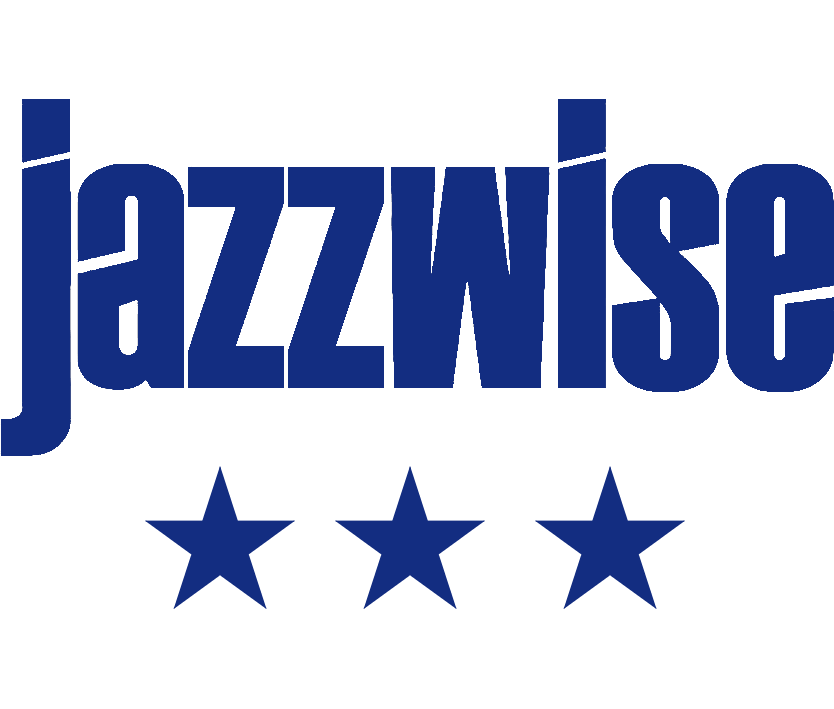Gábor Juhász, Palle Mikkelborg 60/40
Existence has an aspect of stillness – at least it seems to, when you are alone in the forest, holding your breath, not blinking. The rhythmic aspect is much more obvious; breathing, heartbeats, days, years, love, life ... music.
I’ve heard that the complex rhythmic cycles of Indian music imitate the course of the stars. The indescribably difficult rubato is like most cycles of existence: unpredictable. Jazz comes from the heart, and it beats like the heart.
Gábor Juhász
Artists
Gábor Juhász - guitar, oud, tampura
Palle Mikkelborg - trumpet, fluegelhorn, keyboards
Helen Davies - harp (1,2,3,4,6,8)
Zoltán Lantos - violin (1,4,5)
József Horváth Barcza - double bass (1,3,7)
Péter Szalai - tabla (4,5,6)
András Dés - percussions (1,2,3,4,5,6)
Elemér Balázs - drums (1,3,7)
About the album
Compositions by Gábor Juhász (1,2,3,5); Palle Mikkelborg (4,8); Charlie Mariano (6) and Archie Shepp (7)
Recorded at the Tom-Tom Studio, Budapest, 22-77/09/2003
Recorded and mixed by Attila Kölcsényi
Cover art by Meral Yasar based on photos by Ákos Wallner
Portrait photo: István Huszti
Art-Smart: Meral Yasar
Produced by László Gőz
Executive producer: Tamás Bognár
The recording was sponsored by Ministry of Cultural Heritage, the National Cultural Fund of Hungary and the Artisjus Music Foundation
Reviews
Scott Yanow - allMusic **** (en)
Kenny Mathieson - Jazzwise *** (en)
Xavier Encinas - Citizenjazz - élu (fr)
Jacques Denis - Jazzman *** (fr)
Maurizio Comandini - altriSuoni.org (it)
Juan Carlos Abelenda - Tomajazz.com (es)
Á.G.A. - Diverdi (es)
Af Ivan Rod - Gaffa.com ***** (dk)
Tzvetan Tzvetanov - Rhythm (bg)
Turi Gábor - Gramofon *** (hu)
Olasz Sándor - Rockinform (hu)
Retkes Attila - Medical Tribune (hu)
Zombori Tamás - Világgazdaság (hu)
Gábor Juhász, Palle Mikkelborg: 60/40
The rhythmic aspect of existence
Existence has an aspect of stillness – at least it seems to, when you are alone in the forest, holding your breath, not blinking. The rhythmic aspect is much more obvious; breathing, heartbeats, days, years, love, life ... music.
I’ve heard that the complex rhythmic cycles of Indian music imitate the course of the stars. The indescribably difficult rubato is like most cycles of existence: unpredictable. Jazz comes from the heart, and it beats like the heart.
Many thanks to my friends Elemér, József, Péter, András and Zoltán, a group with a vast knowledge of rhythm, for their art and love. Many thanks to Helen and Palle for making my life richer with their music and their friendship. I thank Palle for one more thing; if I listen his trumpet playing (holding my breath, not blinking) I can feel the presence of the still aspect of existence. He’s the only one who can do that.
Gábor Juhász
(translated by Richard Robinson)
I met Gábor for the first time one rainy windy evening in Budapest when I gave a concert there with Helen and Terje. Our meeting resulted in a wish to meet again and to play together. A little while later György Wallner contacted me and asked if I would play on Gábor’s forthcoming CD, and if I would also bring a couple of my own tunes to record. I decided that it would be great to bring the harp into the sound-picture, especially in the tune In spite of...
Little did we guess how very special this week of recording would be...
meeting and recording with these great musicians and lovely people...
Gábor, Zoltán, József, Péter, András, Elemér. It was really good to play Gábor’s music, and I’m very thankful for what they all gave to my songs. These songs are:
Youth... .a dedication to the child we were…the child we still are, hopefully!
In spite of... ... a composition originally written as a tribute to the work of the International Rehabilitation Centre for the Victims of Torture and its Danish founder Dr. Inge Genefke.
Palle Mikkelborg
Gábor Juhász (b. 1968) completed his studies at the Bartók Béla Music School in jazz guitar as a pupil of Gyula Babos, and then became a student of the jazz faculty at the Liszt Ferenc Academy of Music.
After his early years of study he took part in founding the Pangea and Tin-Tin Quartets, ensembles that operated as creative workshops, creating a synthesis between eastern folk music, contemporary music, and jazz. He was a member of the Tin-Tin Quartet for almost one decade.
In 1999 he and his old friends resuscitated the Off Course ensemble, whose first album, Street of secrets (BMC CD 024) swept Gábor into the mainstream of Hungarian jazz. As a result of this in 2000 he was invited to play in the Balázs Elemér Quintet and in 2001 in Trio Yengibarjan, bands whose albums Always that moment (BMC CD 037) and Tango passion (BMC CD 051) have become the most popular Hungarian jazz albums of the time.
In 2002 the violinist Zoltán Lantos, then recently returned from India, invited him to play in his band Mirrorworld, where he plays with Mihály Dresch and Kornél Horváth. The quartet’s album Tiptoe ceremony (BMC CD 078) won the award “Best Hungarian Jazz Album of 2003” in a poll by Gramofon magazine.
In the last few years he has performed on stage with many musicians from abroad, of whom the influence of Archie Shepp, Charlie Mariano and Erik Truffaz left a deep impression on his playing. His collaboration with the latter two musicians can be heard on the albums Tales of the lighthouse (BMC CD 077) by Off Course and Erik Truffaz, and on Our worlds beyond (BMC CD 086) by the Balázs Elemér Group and Charlie Mariano.
Since 1990 he has been a teacher of jazz guitar at a music school, and he has published articles on musical matters regularly since 1998. In recognition of his work he was awarded the Gramofon magazine “Hungarian Jazz Award” in 2002.
Palle Mikkelborg (b. 1941) took up the trumpet in 1956 and became a professional musician in 1960. He established himself as an orchestral musician when he became a member of the Danish Radio Jazz Group and the Danish Radio Big Band in the 1960s.
As leader of these bands during the 1970s he developed his talents as a composer and arranger for large ensembles, and also as a skilled interpreter of the work of other composers and arrangers. Palle Mikkelborg also worked with other smaller groups during this time, constantly refining his instrumental and composing talents.
Throughout the 1980s, his growing reputation amongst musicians led to tours and recordings in Europe and Japan with artists such as Gil Evans, George Russell, L. Shankar, Hermeto Pascoal, Gary Peacock, Dino Saluzzi, Terje Rypdal, Jan Gabarek, Trilok Gurtu and Abdullah Ibrahim. He also led his own highly successful group Entrance, and was a member of the Heart to Heart Trio (with Kenneth Knudsen and Niels Henning Ørsted Pedersen).
In 1984 Palle Mikkelborg was commissioned to compose an extended piece Aura dedicated to Miles Davis in connection with the celebration of Miles Davis receiving the Danish Léonie Sonning Music Prize. A few months after the concert, Miles Davis returned to Denmark to participate in a recording of the piece, produced in the studio by the composer. This special project was released in 1989 and received a number of international awards, including two USA Grammy Awards.
In recent years Palle Mikkelborg has worked closely with the Norwegian guitarist Terje Rypdal and with Welsh harpist Helen Davies.
Among his most recent commissioned works are music for a documentary film on the ballet dancer Erik Brun, A noon of night for the Danish Royal Chapel Choir and harp (which they have performed worldwide to great critical acclaim), The voice of silence for big band, tape and soloists (recorded for CD and toured in Australia and East Asia in 2000 with the Danish Radio Jazz Orchestra) and Going to pieces without falling apart – a double concerto for violin, harp and string ensemble, which received its premiere in 2003 with Elise Batnes, Helen Davies and Bergen Chamber Orchestra.


